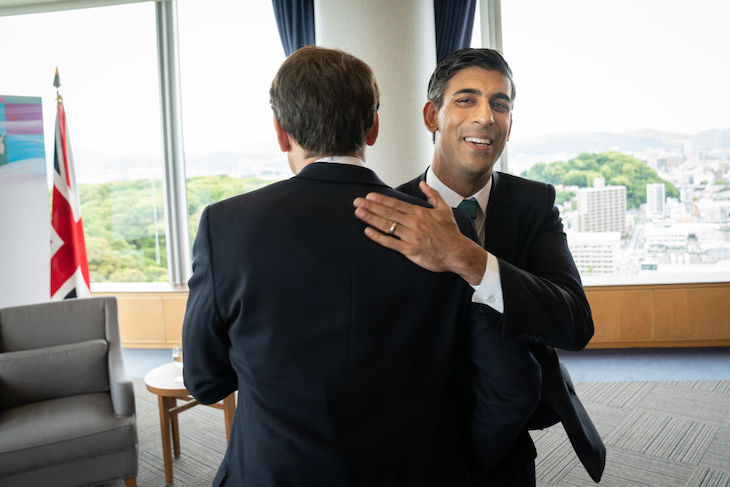Voters will have learned several things about Rishi Sunak in recent days: that he thinks he can win the next election; that he and his wife have fallen 50-plus places on the annual Sunday Times Rich List, and that he can emerge from a punishing flight schedule – London to Hiroshima via Reykjavik and Tokyo – with little overt trace of jet-lag.
Already a subscriber? Log in
Subscribe for just $2 a week
Try a month of The Spectator Australia absolutely free and without commitment. Not only that but – if you choose to continue – you’ll pay just $2 a week for your first year.
- Unlimited access to spectator.com.au and app
- The weekly edition on the Spectator Australia app
- Spectator podcasts and newsletters
- Full access to spectator.co.uk
Or



















Comments
Don't miss out
Join the conversation with other Spectator Australia readers. Subscribe to leave a comment.
SUBSCRIBEAlready a subscriber? Log in